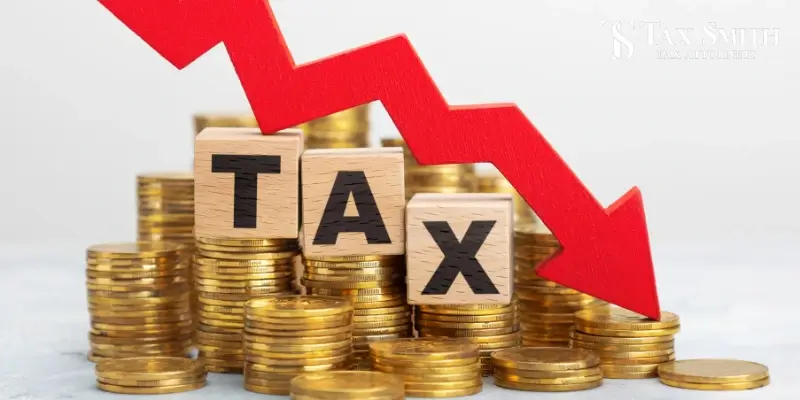1548 The Greens Way – Ste. 4 Jacksonville Beach FL 32250
Jacksonville Penalty Abatement Attorney
Jacksonville Penalty Abatement Lawyer
Many people face hardships that make it difficult to keep up with tax payments. If you have begun to see tax penalties, it can be very stressful. You may feel like there is no way out of your situation.
There are options to assist you with your debt, whether you have received penalties or will soon. Options like penalty abatement can limit the impact your debt has. If you speak with a Jacksonville IRS audit defense attorney, you can determine if you qualify for penalty abatement or another program for your tax debt. At TaxSmith, LLC, we work to help clients reduce penalties and find solutions that ease their financial burdens. The longer you wait to address your debt, the bigger an issue it will become.

Tax Smith Tax Attorneys: Finding Options for Your Tax Debt
When you talk with an attorney who has years of experience handling tax cases and tax debt, you can find a solution. At Tax Smith Tax Attorneys, we can look over your situation and determine the best avenues for settling your tax debt. We can work with you to decide what your needs are, what you qualify for, and what programs are in your best interest. The team at Tax Smith Tax Attorneys has decades of combined experience working with cases like yours. We want to provide you with the individualized legal advice you need.
What Is Penalty Abatement?
When you owe back taxes to the Internal Revenue Service (IRS), you do not want to owe penalties on top of those taxes. The longer you wait to deal with tax debt and tax penalties, the more stressful it will become.
Penalty abatement allows you to remove full or partial penalties from your tax debt if you qualify. It is a request to the IRS to remove penalties from your tax account for a reasonable cause. This may apply to one or multiple tax years, depending on the reasonable cause.
Why Do I Need a Penalty Abatement Lawyer?
Requesting a penalty abatement can be complex and overwhelming. A qualified tax attorney can handle difficult tax issues and the IRS. They can also make the process of requesting a penalty abatement much quicker. A penalty abatement lawyer can inform and advise you concerning which programs are best for your circumstances.
What Tax Penalties Are Eligible for Abatement?
There are certain penalties that may be relieved by the IRS. Some of these penalties include:
- Failing to file tax returns on time
- Failing to file information returns or payee statements on time
- Underpayment of the required tax listed on your tax returns
- Failing to deposit taxes on time, such as employment tax deposits by employers
- Failure to pay taxes in a timely manner
- Paying for your tax payment with a dishonored check
- Underpayment of estimated tax
Several of these penalties will continue to grow over time if your tax debt is not fully paid. You should consult with a tax attorney before applying for penalty abatement to determine whether you should pay the owed amount.
Receiving Penalty Abatement
Every penalty abatement case is different. There is no set standard for how these cases are decided by the IRS. There are several reasons a person may qualify for penalty abatement. Reasons may include:
- You were affected by severe incapacitation or illness.
- You had an unavoidable absence, such as being in rehab or prison.
- You were unable to get the necessary records because of a fire or another disaster.
- You lost a family member or loved one.
- You received inaccurate advice from a tax expert.
- You received incorrect information from the IRS.
Another reason the IRS may approve penalty abatement is through the first-time abatement waiver. The first-time abatement penalty waiver is an option if you have filed your tax returns previously and missed one filing for unexpected reasons. This waiver is only available for one tax period and may reduce or abate penalties.
Other factors that may influence the favorability of your case include:
- You previously made timely payments.
- You made a mistake or oversight based on your limited knowledge or experience.
- You made an oversight despite using standard business care.
- You relied on another person to file your tax returns.
- You disclosed your tax liability prior to receiving notice from the IRS.
A tax expert can help you establish a reasonable cause for penalty abatement based on your situation and explore other ways to get out of tax debt.

FAQs About Jacksonville, FL Penalty Abatement Law
How do I deal with unfiled tax returns?
If you have failed to file tax returns for one or more years, you should do so as soon as possible, especially if you have been contacted by a private debt collector regarding your unpaid taxes. If you are unable to file your tax returns for financial reasons, you may be able to file for an offer in compromise to lessen your tax debt. You could also pay through an installment agreement. Penalty abatement may be another option for lowering your debt. Talk with a Jacksonville lawyer to determine what your best steps are for relieving your tax debt.
Who do I talk to about unfiled taxes?
When you have unfiled taxes and back taxes, you are likely also dealing with interest and penalties. A qualified tax attorney can help you determine the best course of action to handle your tax debt. This may include simply filing your unfiled tax returns. You may also be able to pursue another avenue to lessen your tax debt.
How far can the IRS go back for unfiled tax returns?
There is no statute of limitations on failing to file a federal tax return. This means that the IRS can add interest and penalties at any time to your tax debt for unfiled tax returns. Usually, the IRS only requires taxpayers to file unfiled returns that are six years old or less. The IRS may reinforce older unfiled tax returns if they:
- Believe your tax liability that year was significant.
- Need that year’s tax information for current tax returns.
- Suspect illegal behavior in that unfiled tax return.
What happens if you have years of unfiled taxes?
Failing to file one tax return will result in penalties, but failing to file for many years will accrue severe penalties and even criminal charges. Criminal punishment only applies to taxpayers who have willingly failed to file and have avoided or refused opportunities to fix their tax debt. However, even if you are not guilty of tax evasion, you could see severe financial problems from years of unfiled taxes. To resolve this, you should consult a tax expert.
Let Tax Smith Tax Attorneys Help Resolve Your Tax Debt
The qualified attorneys at Tax Smith Tax Attorneys can determine if you are eligible for penalty abatement or another method of relieving your tax debt. Contact us today.
Locations We Serve
- Alabama
- Arizona
- California
- Colorado
- Connecticut
- Delaware
- District of Columbia
- Florida – HQ
- Georgia
- Idaho
- Illinois
- Indiana
REQUEST A CONSULTATION
Please fill out the Contact Request Form and a Tax Attorney/Paralegal will call you
to discuss legal representation or to schedule your free initial consultation





